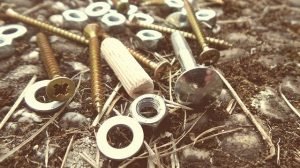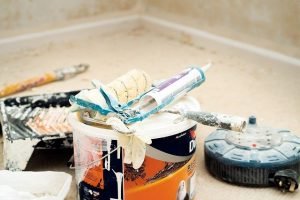
It can seem like a lot of work to learn about plumbing, but with some research and effort, you can educate yourself on the subject.
To keep your pipes from getting frozen, always maintain a temperature in the house above freezing and make sure all pipes exposed to outside elements are insulated properly. Pipes will begin to freeze as soon as they reach freezing temperatures. The best result you can hope for from frozen pipes is to be without water until the pipes thaw. However, they might burst, which will cause an enormous mess and repair bill.
Noisy pipes that make squeaking or hammering sounds are an easy do-it-yourself project. You must anchor any type of exposed pipes.
Odor removers such as bleach toilets are not good for your plumbing system. Either kind of toilet tablet might break down obnoxious smells in your toilet, but they might also break down the rubber parts, resulting in malfunction.
To keep your pipes from freezing in the winter, don’t let temperatures drop under freezing in your home, and be certain to adequately insulate those pipes that are out in the weather. Your pipes can freeze if the air around it is below freezing. It could take some time to thaw out so that you can have running water. However, frozen pipes often burst, as well – making a huge plumbing bill.
If you are unable to relieve a clogged toilet with a plunger, try pouring a small bucket of water into the bowl from about waist level if the level of water in the bowl is low. Repeat this once your water goes back to a lower level.
Do not pay anything until the job. You may have to put money down before they start working, but you never want to pay the entire amount until you are certain the job was completed to your satisfaction. You want to know the bill when you are completely satisfied with the job.
Check carefully around the base of your toilet for any damage caused by leaks. Sit in a reversed position, putting one foot on each side of the toilet and shift your weight from side to side to check if the floor feels slightly unstable. You can save a lot if you catch these issue sooner.
Don’t put things like fat, grease or fat into your drain. This is especially damaging to garbage disposal; the fat can make the blades turn more slowly and less efficiently. Make sure you dispose of oils in other places other than the sink.
Try to avoid putting things like fat, oils and grease down the sink drain. These substances will harden as soon as they cool down, and clog your drains. This can make your garbage disposal run slower. Don’t put oils down the sink.
Dish Soap
Make a schedule for plumbing work, so it occurs all at approximately the same time. Rather than calling a plumber every time there is a minor problem, taking care of everything at once allows you to save money for additional repairs down the road. Most plumbers have an hourly rate and a flat rate for the trip: asking a plumber to fix multiple problems in one trip is cheaper than calling them more than once.
You can use dish soap, dish soap, and cherry pits to get your garbage disposal clean and fresh and running well.
Keep your bathtub drain running well by pouring a cup of baking soda followed by a cup of vinegar down the drain each month. Seal off the drain with a conventional plug or a piece of fabric while the natural chemical reaction takes place. Wait a while, then flush it with boiling water. By following this tip, you should be able to clear all the soap scum, hair, and other grime out of your pipes.
Installing efficient shower heads that are more effective can save you a lot on your energy bill. The majority of hot water. By installing shower heads that are energy-efficient, you could save at least $100 a year per person who showers in your house.
Always use cold water when your garbage disposal is running. The cold water will help keep the blades nice and sharp and will allow for a much smoother disposal. Grease will stay solid and go through your drain with cold water; you don’t want gooey grease in your pipes.
If you have unwanted water that drains in your dishwasher, it is most likely because of the hose to the kitchen sink being installed improperly. The hose from your sink and the dishwasher has to go up and then down so that there is no mixing between fixtures.
Do not use your toilet to get rid of garbage. Don’t flush items like paper towels, sanitary napkins, diapers or cotton balls, because these items don’t break down and may cause clogging issues. Also, be conservative in your use of toilet paper.
Use enzyme based if you want to clean clogged pipes. These cleaners have natural bacteria in them, and turn it into a liquid that is then flushed from your pipes. The cleaners are enzyme cleaners.
Make sure a new shower head is of high quality. People try to save money by buying the least expensive shower head that is out there. Cheap shower heads can break much more easily.
The best way to avoid plumbing repair bills is prevention.Drain clogging is a common plumbing issue and sometimes expensive to repair when they are not addressed promptly. Drains easily clogged by hair.It’s a lot easier to take hair that is on a screen than to pull it from a pipe.
Make sure to clean out the dryers lint trap. This will save you trouble, such as preventing fires. Always check your lint trap for damage, such as holes or tears. This could allow lint to enter your pipes, leading to clogs or other plumbing complications.
Clean the aerator to fix low pressure issues which result from sediment buildups. Take out the aerator, pull it apart, and brush it clean with a little vinegar.
If you want to add some water pressure to the shower or any spigot in the home, make sure you clean out the aerator. A small brush (an old toothbrush is ideal) dipped in vinegar will do a great job on the aerator after it’s been removed and disassembled. Rinse it and put it back on the faucet. This should raise the water pressure nicely because anything that was inside of the aerator will be removed.
Not so hard right? Like other things, the plumbing world is gigantic, and there is a ton of information about it out there. All you need is a little boost to get you started. The article above gave you this information.
No matter what plumber you use, you should know a little about him before he comes to the door. Even if your insurance company assigns a plumber to you, you can get online and learn his name and the quality of his work. If your insurance provider has set up the appointment, check the company website to see customer reviews and feedback. This allows you to have some information before they arrive.



